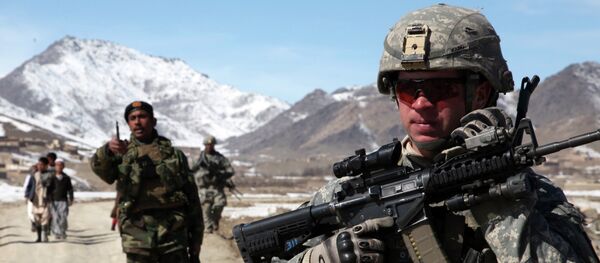According to Benjamin Bahney and Patrick B. Johnston, US experts at the nonprofit, nonpartisan RAND Corporation, the only way to diminish Daesh's expanding global influence is to cut off the financial sources fuelling the infamous terror organization and to disrupt its flow of foreign fighters.
"First, the United States and its coalition partners need new efforts to cut off ISIS [Daesh] revenue and its bulk cash holdings inside Iraq and Syria. While traditional counterterrorism financing efforts help to keep the group isolated from deep-pocket donors, Washington and its partners may also be able to stem ISIS's activities in other countries by designating and sanctioning individuals who facilitate the group's operations abroad or are key conduits for the group's access to the equipment and expertise it needs to operate its oilfields," Bahney and Johnston suggest in their latest piece for The National Interest.
However, the experts believe that "these short-term steps" are not enough to eliminate the Daesh threat.
"A lasting solution will also require additional security assistance as well as vigorous and expedient diplomacy," Bahney and Johnston highlight.
"While ISIS [Daesh] has made moves to threaten the Iraqi and Syrian governments, these governments can most effectively diminish ISIS by making concessions to their Sunni communities," the US experts remark vaguely.
What do they mean? What mysterious "concessions" Damascus and Baghdad should be prepared to make to their "Sunni communities"?
According to Dobbins, all factions involved in the Syrian crisis as well as the Syrian Arab Army should conclude a ceasefire agreement. It would be naive to believe that Daesh will join in any settlement, he noted, adding that other parties should stop fighting each other and join in eradicating Daesh.
It could take years to negotiate peace in Syria among all the sides involved, including the US, Turkey and Saudi Arabia's protégés, he remarked.
"In the interim, each faction should govern the territory it holds, while the external parties should undertake to ensure no internal party seeks to expand its territorial hold. This means Syria will be effectively partitioned for some interim period," Ambassador Dobbins suggested in his article for USA Today, published on November 2.
Is it really the way out? Whose protégé is al-Nusra Front, and other al-Qaeda affiliates in Iraq and Syria? Who exactly would negotiate a ceasefire agreement with al-Qaeda, Washington's longstanding adversary? And, finally, did Ambassador Dobbins take into consideration the will of the Syrian people, while proposing the country's partition?
It sounds highly unconvincing, Cartalucci noted, that the situation on the ground could be settled by fragmentizing and balkanizing Syria. He referred to the fact that in Libya such an approach has only led to greater chaos.
The recipe for eradicating Daesh proposed by Bahney and Johnston prompts the question, why has Washington not halted the flow of money and foreign jihadi fighters in Syria and Iraq for the past four years? And why has it been turning a blind eye to Saudi Arabia and Turkey's involvement in sponsoring of Daesh Islamist militants?




